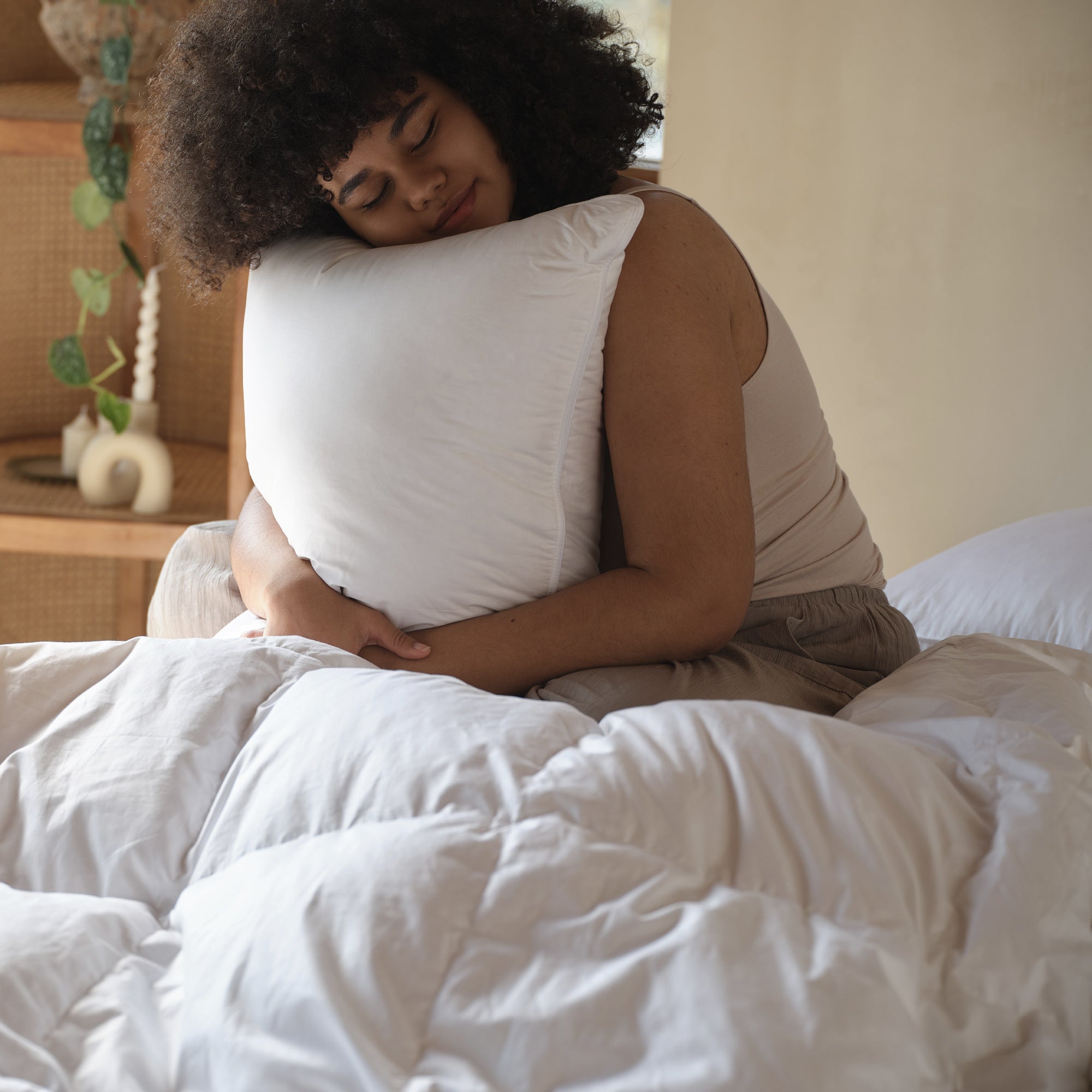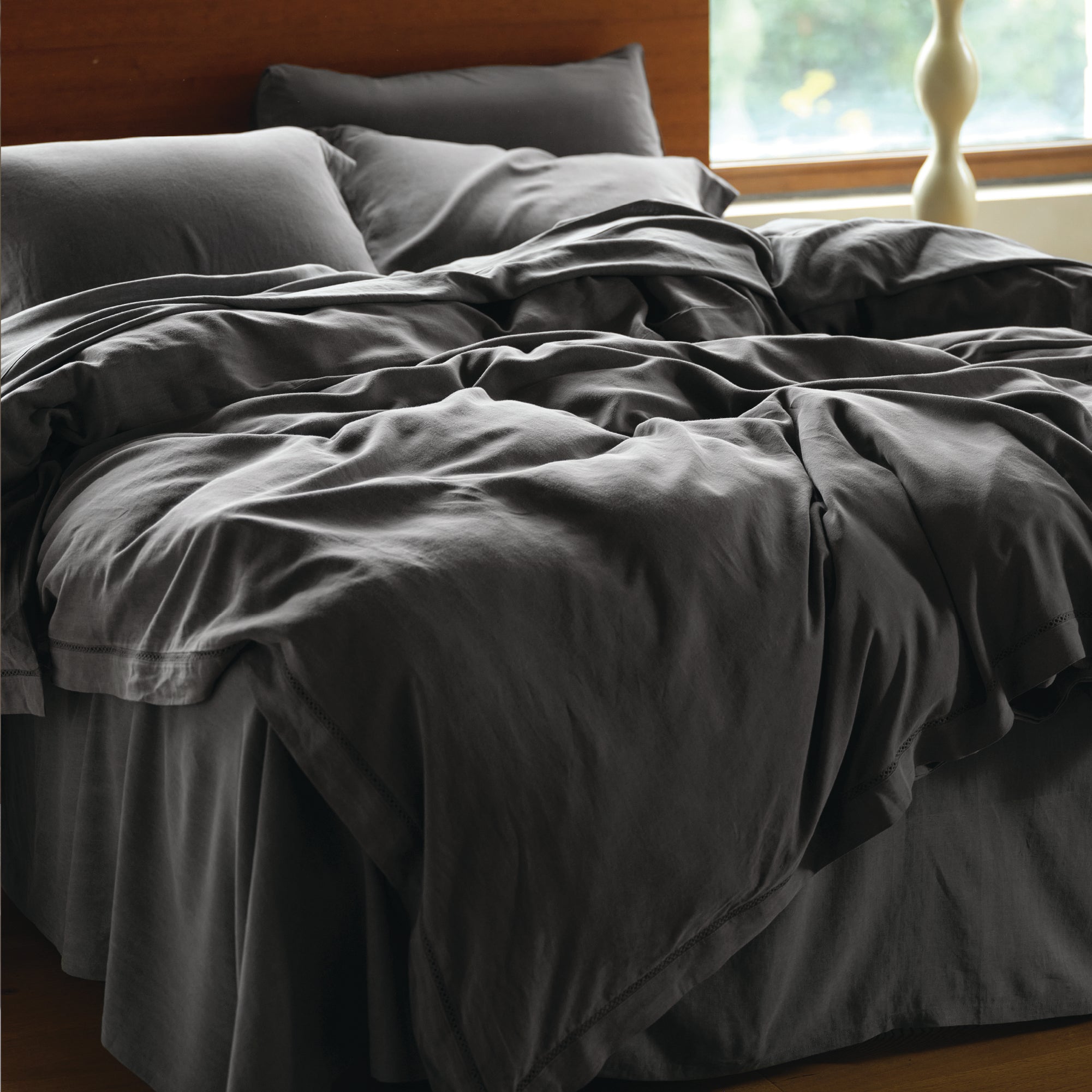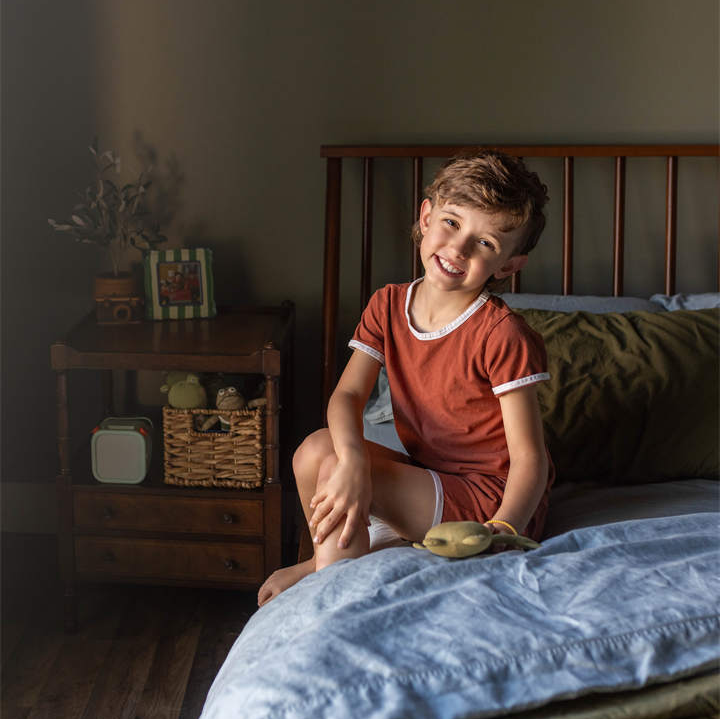If you have trouble falling asleep at night, you’re definitely not alone. These days, we’re all surrounded by smartphones and laptops and screens and countless LEDs and and…bzzt bzzt…oh, is that a work email coming through at bedtime? Of course it is.
With all of these distractions, it’s getting harder and harder to turn your brain off and get some rest. In fact, some studies find that upwards of 33% of American adults suffer from regular, chronic insomnia. More than 1-in-3. That’s not great, right?
Yeah, it’s kinda bad.
Not being able to fall asleep (or consistently waking up in the middle of the night) isn’t just annoying—it can do a real number on your mental, physical, and emotional health as well. Untreated sleeplessness increases your risk of depression, anxiety, high blood pressure, and even diseases like heart disease, cancer, and diabetes.
The good news? A few simple changes in your habits can have a dramatically-positive effect on your sleep.
Take out the tech
Have a TV in your bedroom? It’s probably time to move it somewhere else, along with any computers or tablets. It’s best to leave your smartphone in another room, too. Scrolling in bed at night and staring at a bright phone screen’s blue light messes with your circadian rhythm, making it harder to fall asleep and wake up feeling rested.
The bigger idea here is to make your bedroom a space that is only for relaxation and sleep, cut off from the barrage of text messages, memes, social media, and emails. It’ll take some getting used to, but you’ll start seeing the effects almost instantly.
Raise the heart rate
I know I know, exercise. It’s not always super fun, but study after study has found regular physical exertion to be one of the most effective activities for improving sleep and minimizing the negative effects of insomnia. Luckily, you don’t have to go too intensely here—creating a mindful routine that matches your physical ability and schedule, like something as simple as a nice walk around the neighborhood, will do. Just try to be consistent.
Create a bedtime routine
The science on this is simple: caffeine, food, alcohol, and light exposure in the evening all affect your melatonin levels and circadian rhythm, making it much harder to fall (and stay) asleep.
A couple hours before bedtime, try dimming the lights and turning off your screens. Apps like Flux and scheduled screen dimmers can help, too. Read a book or listen to a podcast. If that doesn’t sound like your thing, then just ride the wave. Play a board game or do some… sudoku puzzles? The answer will be different for everyone, but the idea here is to go analog and hang like it's 1915 just before bed time.
Make your bedroom your happy place
This one may seem a bit obvious, but the more you love your bedroom, the more you’ll want to be there (and being there is step 1 to a great night’s sleep). Now, this means something different for everyone. Some people find plants relaxing, for example, while others might prefer their favorite artwork, or classical music, or some aroma therapy. Whatever it is that makes you feel peaceful, try to incorporate those things into your space.
Of course we have to talk about bedding here as well, as comfort is key. Here’s the big secret: there is no “perfect sheet” or “perfect blanket,” because everyone is different. But there are sheets and blankets that are best suited for how you sleep.
For example, if you are a hot sleeper, our Linen Lyocell Sheets are extra airy and breathable (and wick away moisture) for a cozy (but cool) sleep. If you’re looking for ultimate softness, our Cotton TENCEL™ sheets are luxuriously plush and wrinkle-resistant for super simple care. And since they're responsibly-sourced and made with sustainable materials, you can rest easy knowing you’re doing your part to make the world a better place.
Do you have any secret tips for getting a good night’s rest? Let us know in the Double Stitch Community.
























Leave a comment
This site is protected by hCaptcha and the hCaptcha Privacy Policy and Terms of Service apply.